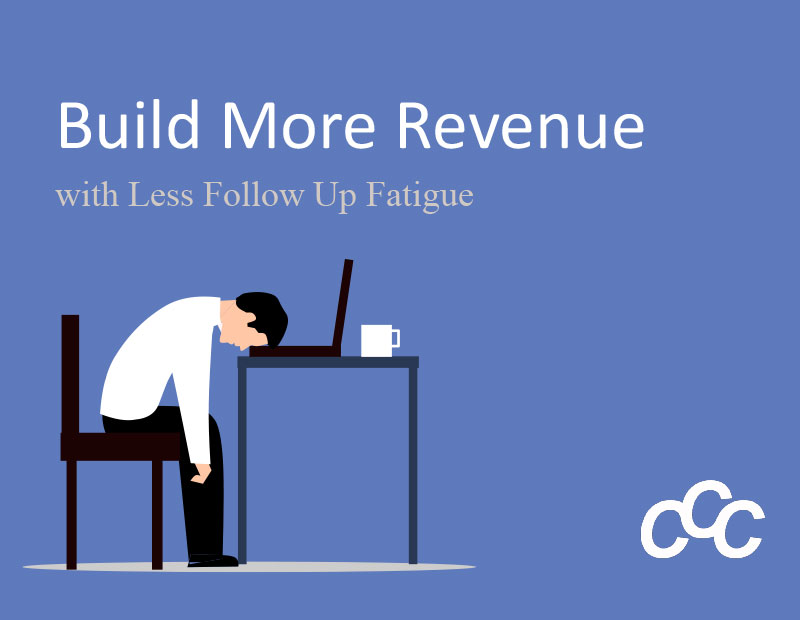Shopping for CRM software can be like shopping for a vehicle. When you look for a vehicle, you need to decide if you are looking for a sedan, SUV, or truck. Do you need all-wheel drive or front-wheel drive? Do you need extra safety features like lane-change indicators and cameras? Do you need electric, hybrid, or gas? There are so many options, you need to decide what is important and non-negotiable before going to the dealership. Otherwise, you may buy a vehicle that has features you don’t need or a vehicle that is missing a feature that you do need.
As a small business owner, you need to do the same thing with CRM software. If you go with a CRM that has all the bells and whistles, you may be paying too much for features that you do not need. At the same time, if you choose a CRM that looks good without diving into it, you might end up with software that does not meet your business needs.
Let’s imagine that you are a small business owner that sells and services tractors to industrial businesses. You have 30+ employees ranging from sales and business development to technicians and mechanics. Up until now, your sales team has emails quotes to customers that they manually create and scan. Your business development team uses spreadsheets. Your technicians and mechanics use a paper service ticketing system. Your billing team manually prepares invoices and either email them or puts them in the mail. Your business is growing, and each method is working individually, but corporately it is not when department methods overlap. You realize that you need CRM software for your small business.
The first thing you do is talk to a CRM consultant who learns about your business and your goals. The consultant helps you decide what you need in a CRM and helps you see there are 7 things that you need to look for in CRM software.
- Centralize company communicationOne of the growth challenges that you may experience as a small business is getting everyone to communicate with each other. It is easy for employees to communicate within their departments, but outside of their departments is a different story. When you look for a CRM, it should give you the ability to centralize company communication across the board. Whether it is a company-wide calendar with project deadlines or your sales team working with one of your mechanics, a CRM keeps everyone on the same page and customer management in one place.
- Configure customer sales funnelIf you think about it, every employee is involved in the sales process whether it is to a prospect or a customer. The sales team brings in the sale. Billing’s responsibility is to collect money from the sale. The technician fulfills the terms of the sale if a tractor is being serviced. Because everyone plays a part in the customer’s journey, a CRM needs to be able to give you control of your customer sales funnels. As a small business owner, you want to be able to define each stage of the funnel in your CRM to track customer sales, work orders, and opportunities.
- Make quoting and electronic signing easySending out quotes and signing contracts is essential to business. However, in this age of instant, manual quotes and signatures could cost your business if it takes too long. Time is money for industrial businesses, so sending quotes and getting signatures needs to be done quickly. A CRM needs to have the ability for you to create and send a quote based on the customer’s need. You also need the ability for the customer to sign electronically, so they do not have to take time out of their busy day to finalize the contract in person.
- Ability to segment audiences and messagingAs your customer base grows in the industrial sector, there will be groups of customers that have different objectives, but they need the same tractor such as a building contractor and a road construction crew. You need a CRM that can segment your audience, so you can send specific messages to each segment according to their wants, needs, and goals.
- Automate tasks and correspondenceEvery employee in your business has tasks that can be automated. The sales team sets reminders to follow up with prospects. The billing team sets reminders for recurring payments or to follow up with late payments. The mechanical team needs to let project managers and billing know when a job is completed. These are tasks and responsibilities that can be automated at the click of a button or with a time-based trigger. You need a CRM that can automate tasks to save time and minimize follow-up fatigue. If a CRM cannot automate tasks, it is not the right CRM.
- Create custom reportsIt is almost impossible for a small business to make informed decisions when data is spread across spreadsheets and word documents. Using a CRM to move away from spreadsheets and documents and centralize data is a good decision. However, if you cannot create custom reports to analyze data such as buying behavior, industry and economic patterns, customer acquisition costs, and so on, your decision-making is limited. You need a CRM that has custom report features so you can analyze your data, and your departments can track their progress and goals.
- Access to enterprise supportAs a small business owner with a growing company, you do not have time to spend researching all the capabilities of your CRM. This is where your consultant and enterprise support can help you. Your consultant knows your business goals and your customer needs and helps you use your CRM in the most profitable way. As you look for a CRM, make sure your consultant explains what support is available from the consultant and the CRM vendor. Support can include both If it does not include strategic business and day-to-day, operational support.
Conclusion
We’ve painted the picture of what it would look like if you owned a tractor sales and service company. Now, look at your business. How many employees do you have? How can you see each one using the CRM? What are CRM features that would help streamline sales and operations and make your small business more profitable?
X2CRM is an open-source CRM for small businesses. It can do the 7 things needed in a CRM plus much more. Contact us today to schedule an X2CRM demo and learn how it can help your business grow.





